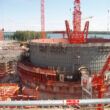Challenges outnumber resources
By Dalia el-Akkad, December 20, 2012
This year, Egypt's government is spending about 1 percent of gross domestic product on scientific research — a big improvement from the 0.23 percent recorded in 2011. But scientists nonetheless earn low salaries, and infrastructure is poor at universities and research centers. This causes scientists to migrate elsewhere in search of better standards of living, greater access to advanced technologies, and more stable political conditions.
Science journalists feel they could play an important role in lifting Egyptian science out of its quagmire. But science journalists themselves face serious challenges. Among the biggest challenges, particularly when it comes to covering nuclear issues, is politics. Before the revolution, I faced the problem of excessive secrecy whenever I wrote on a topic related to the country's nuclear program. The Mubarak regime considered all atomic affairs top secret. A watchdog committee censored the press, allowing very little on these subjects to be published. It only allowed nuclear news to be published if it highlighted the regime's achievements. Even now, Egypt's draft constitution fails to provide clarity on the tension between, on the one hand, national security and, on the other, press freedom and the public's right to be informed. (A public referendum on the draft constitution is to be completed on December 22.)
Little space, little money. In Egypt, a limited number of journalists cover science, mostly because media outlets remain unconvinced that covering science is important. Science writers find it difficult to land on the front page, and some newspapers and magazines devote no space to science news at all. Science coverage doesn't receive much money, either — journalists covering nuclear and other scientific issues earn poor salaries, and the result of this is poor coverage, with reporters submitting stories that are translated from Western sources or that depend too much on press releases. But only a few research centers even produce press releases.
Government spokesmen are usually more concerned with official meetings and their travel schedules than with providing scientific information that makes sense to readers. Journalists are not allowed to step inside the Egyptian Atomic Energy Authority, and cannot talk to any of the scientists there without permission. Then again, many scientists refuse to grant interviews because some journalists do not prepare for their interviews properly, or publish inaccurate information.
Slow train. Another major challenge I have faced is a lack of training courses for people in my field. I began work as a science journalist in 2004, but no course for science journalists was offered locally until 2008. This was funded by the British Council in Egypt, with financial cooperation from the European Union — Egyptian newspapers are generally uninterested in providing training courses to their staff in such specialized areas. Journalists have to be self-reliant, and improve their skills via independent reading and seeking out courses where they exist.
Traveling abroad to scientific conferences represents another major challenge. Most newspapers do not pay journalists to participate in such events, so one must secure outside funding. I have attended six scientific conferences outside Egypt, but each trip has been funded by an international organization in recognition of articles I have written.
This is a shame, because international conferences provide fertile ground for dialogue and networking among people from the developed and developing worlds. In 2011 Egypt was scheduled to host the World Conference of Science Journalists, but the event was moved to Doha because of political unrest. The event, in which I participated, was nonetheless very worthwhile; half the participants came from the developing world and the conference was a truly multicultural experience. Despite the differences among nations, science journalists around the world still face challenges in common — such as how best to communicate with scientists, reach wide audiences, make stories accessible, and bring science into public debate.
Steps forward. Ideally, the media should play a vital role in encouraging public engagement in science and technology. But in a developing country like Egypt, this ideal very often goes unattained. The situation could be improved in several ways. For instance, more workshops and training courses for science journalists should be organized. Press associations should help fund such courses, and should also sponsor competitions and awards for science journalism. University departments of mass communication could contribute by establishing specialized programs in science journalism.
But science journalists themselves have to fight for their own vocation. I learned early in my career that it isn't enough to produce good work — it's also necessary to sell it to editors, to persuade them to publish it alongside political news. Meanwhile, the government should leave it to journalists to decide what nuclear information is important to publish, and should realize that censorship does not contribute to national security. In fact, censorship may only make the public more resistant to nuclear projects. For instance, Egypt's proposed nuclear power project at El-Dabaa has faced opposition from local residents who are upset over land seizures, or who fear negative environmental and health effects. But perhaps the government could have reduced these problems if, to begin with, it had communicated more openly with the public.
Topics: Nuclear Energy
Share: [addthis tool="addthis_inline_share_toolbox"]














